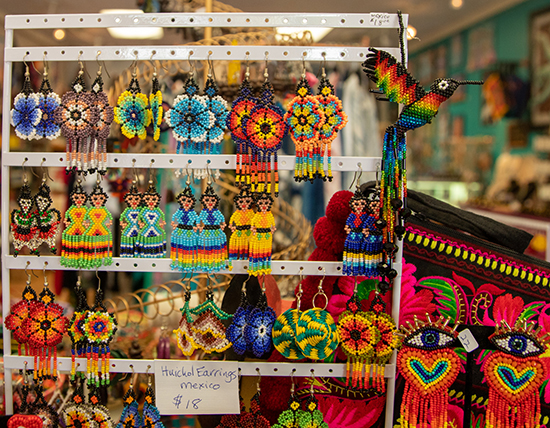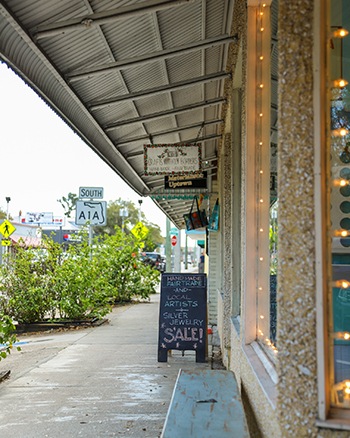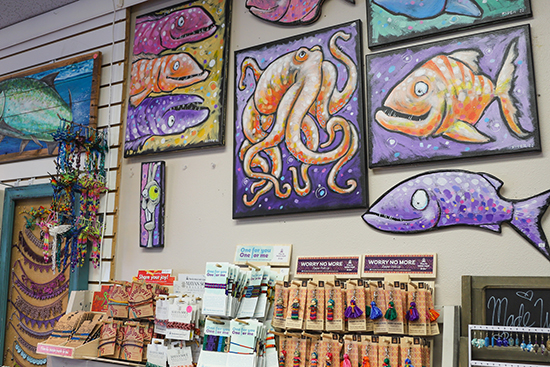By Kathryn Hennessy
Handmade jewelry from around the world is not as far away as you may think.
The local store, Crafts Without Borders, is a global fair trade business that receives it’s merchandise from indigenous cultures around the world.

Located on 76B San Marco Ave., this store’s shelves are lined with colorful beaded crafts and other handmade items. All of which come with a story of where they are from and who made it.
The owner, Caroline Redding, has personal relationships with all of the artists she gets her products from.
“All of the handmade alpaca is from Ecuador. My parents were friends with the parents of the people I now work with. And my son is friends with their children,” Redding said.
To keep up these relationships, Redding and her family travel around the world to meet with the creators of her stores merchandise.
“We go to Ecuador like three times a year to work on designs and patterns and things like that,” Redding said.
These visits allow her to check in with the artists and develop new ideas for future products.

“The styles are always changing. So it’s really exciting to work with them and talk about new ideas and things like that,” Redding said.
It is important to Redding that she is able to help her artists if they are in need. This became prevalent during the recent pandemic.
“During COVID I took money down to Ecuador and bought back their looms. Their looms had been repossessed during COVID because they couldn’t pay the monthly cost. So I purchased the looms and gifted them to Maribel and Jaime, who are my generation of weavers. I placed a huge order, so between Connecticut and here I have 4,000 pounds of alpaca that they made for me. Just to keep them going during the pandemic,” Redding said.
At this time, she started working with three other weaver families from the Ecuador region.
“We purchased a lot of the materials they needed, so that their profit margin is greater. We also increased what we pay for each item. The whole point of working with them is to promote fair wages,” Redding said.
By working directly with the artists she cuts out the middle man, allowing the artists to make above a living wage, which is too often uncommon in retail businesses.
“It’s a way to preserve that culture, because what’s happening now is the Chinese mass produce, they copy things and mass produce them, and it destroys the livelihood of these traditional villages. And people buy the cheaper copy, because they don’t know that it’s not only cultural heritage, but its the livelihood of people,” Redding said.
Each of the artists she works with has a style unique to the cultures they are from.

“You can tell where the pieces of clothing or the bag is made based on the style of embroidery. So every town in Guatemala has a different style. There’s Chichi, they make a more geometric design. And if it’s from Lake Atitlán, they have birds on all of their embroidery,” Redding said.
She wants people to know it’s important to understand where what you buy is from and who made it.
“It’s important to support individuals that are making things if we want our world to be interesting and sustainable, and we need to pay fair prices. Remember there are humans making these and not machines,” Redding said.


Be the first to comment on "Crafts Without Borders"